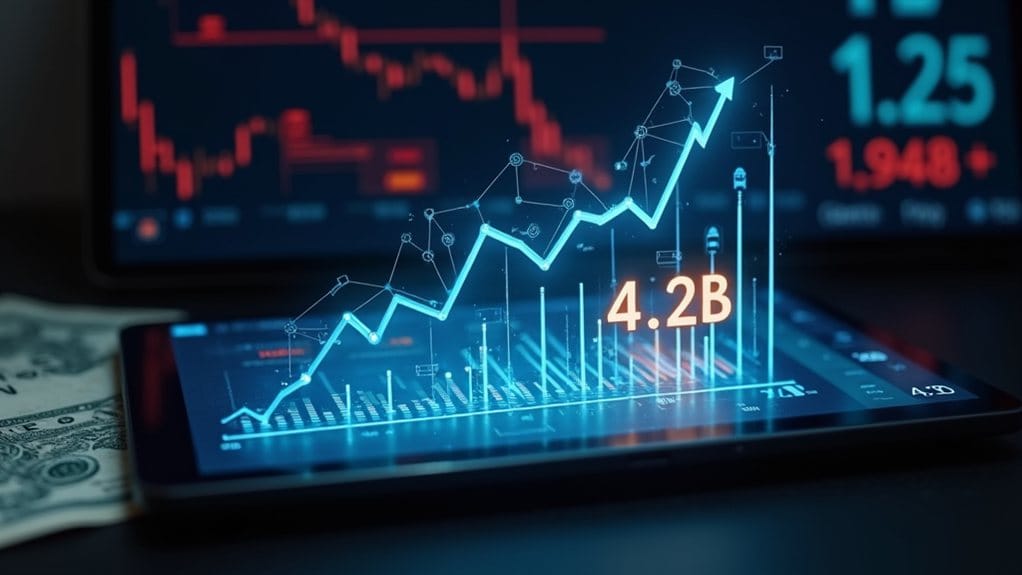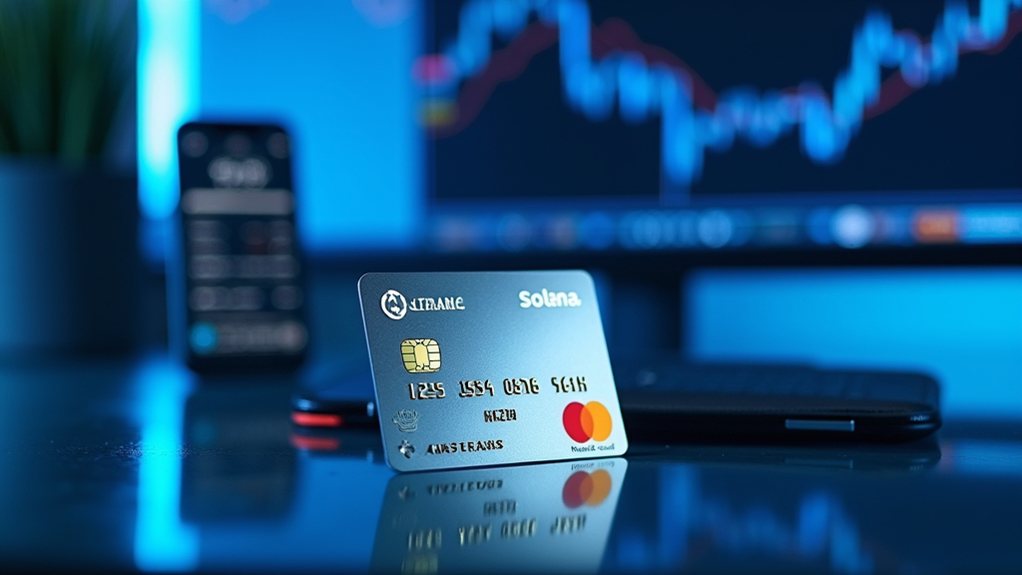The tokenization of U.S. Treasuries has emerged as a significant growth sector in the digital asset landscape, recently surpassing $4 billion in total value as investors seek secure, yield-generating alternatives amid cryptocurrency market volatility. This rapid expansion represents a vital component of the broader tokenized real-world assets (RWAs) market, which reached approximately $15.2 billion by December 2024, excluding stablecoins. These Treasury tokens offer an average yield to maturity of 4.20%, attracting both traditional finance participants and crypto natives seeking stability.
The notable growth trajectory can be attributed to several converging factors, including technological advancements in blockchain infrastructure, improved regulatory clarity, and improved compliance solutions. Market leaders, including BlackRock and Hashnote, have introduced innovative tokenized Treasury products that provide instantaneous settlement and reduced transaction costs compared to conventional Treasury investment methods.
Blockchain innovation unlocks Treasury market efficiency through instant settlement and reduced costs from industry pioneers.
These developments have facilitated around-the-clock trading capabilities, eliminating traditional market time constraints while maintaining the backing of U.S. government securities. Unlike ICO token features, tokenized Treasuries typically provide direct backing by government securities with clear conversion pathways.
Investor participation has expanded considerably, with recent data indicating over 15,463 holders of tokenized Treasury assets. The ecosystem now encompasses 119 active issuers tokenizing multiple real-world assets, with Treasury tokens representing a substantial portion of this activity. BlackRock’s BUIDL has quickly become the largest tokenized fund, capturing 30% of the tokenized Treasury market in just six weeks of existence. Projections from industry analysts suggest the overall sector could grow to between two trillion dollars and $30 trillion within the next five years.
Compliance requirements for these products are currently addressed through offchain know-your-customer (KYC) processes and wallet whitelisting, with further regulatory refinements anticipated throughout 2025.
The technological infrastructure supporting these tokens continues to evolve, with smart contract platforms enabling secure, efficient tokenized investment vehicles. Onchain attestations and wallet verification mechanisms are improving compliance frameworks while maintaining user accessibility.
These innovations reduce friction in transactions while increasing scalability potential for the tokenized Treasury market. As the sector matures, the integration of complementary technologies may further optimize investment processes, potentially increasing adoption among institutional and retail investors seeking exposure to government-backed securities with blockchain efficiency.









